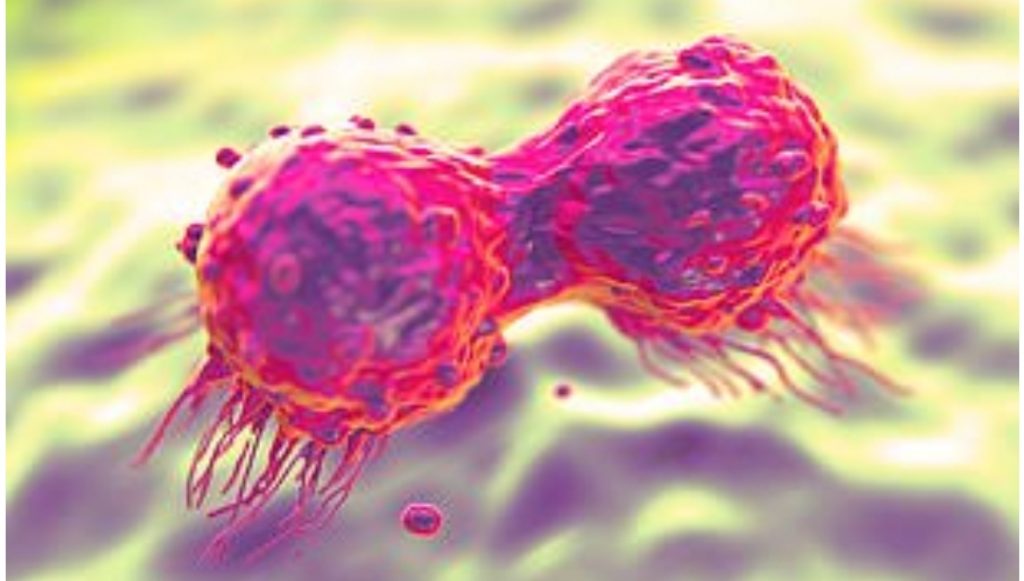
A protein which allows aggressive breast cancers to grow and spread has been discovered by scientists.
Experts hope finding out more about the protein will lead the way to new therapies for hard-to-treat cancers.
Triple negative breast cancer, which affects around one in seven breast cancer patients and is resistant to hormonal drugs, was the focus of the study.
Researchers found too much of a protein named LYN could help cancer cells grow and multiply, and reducing levels of LYN could slow breast cancer down.
The Cardiff University scientists said the findings could be used to develop treatments to control levels of the protein and suppress cancers.
Professor Matt Smalley, from Cardiff University’s European Cancer Stem Cell Research Institute, said: ‘There are 150 new cases of breast cancer diagnosed in the UK every day.
‘To achieve better outcomes for people facing this disease, we need to better understand how it develops so we can improve therapies.We wanted to understand what drives an aggressive type of breast cancer called triple negative, which is resistant to hormone therapy and occurs in around 15 per cent of breast cancer cases
‘We looked at a protein called LYN, which is involved in keeping cells alive and allowing them to divide.
‘And [we] found it was no longer properly controlled in aggressive breast cancer cells and could drive the cancer cell growth, spread and invasion.’
Around 55,000 new cases of breast cancer are diagnosed each year in the UK, with more than 260,000 in the US. The 10-year survival rate is around 78 per cent.
Professor Smalley and his colleagues also discovered a link between LYN and the BRCA1 gene mutation.
The BRCA1 gene mutation, which accounts for a majority of hereditary breast cancer cases, can leave women with an up to 90 per cent chance of getting cancer.
BRCA1 genes are tumour suppressors which keep cancer cells under wraps – if the gene is faulty or missing women are at higher risk of dangerous tumours.
The Cardiff researchers found in some cases of triple negative breast cancer in women with a BRCA1 mutation, the gene could increase LYN activity.
In this way the gene mutation could directly improve the cancer cells’ ability to survive and keep spreading.
Professor Smalley added: ‘Now that we understand the role LYN has in aggressive forms of cancer, we can start to think about developing targeted therapies.
‘In the future, we could potentially identify patients with increased levels of LYN or a BRCA1 gene mutation and design their breast cancer therapy to suit their type of cancer.
‘We could target LYN to improve therapy options for aggressive breast cancer.’

